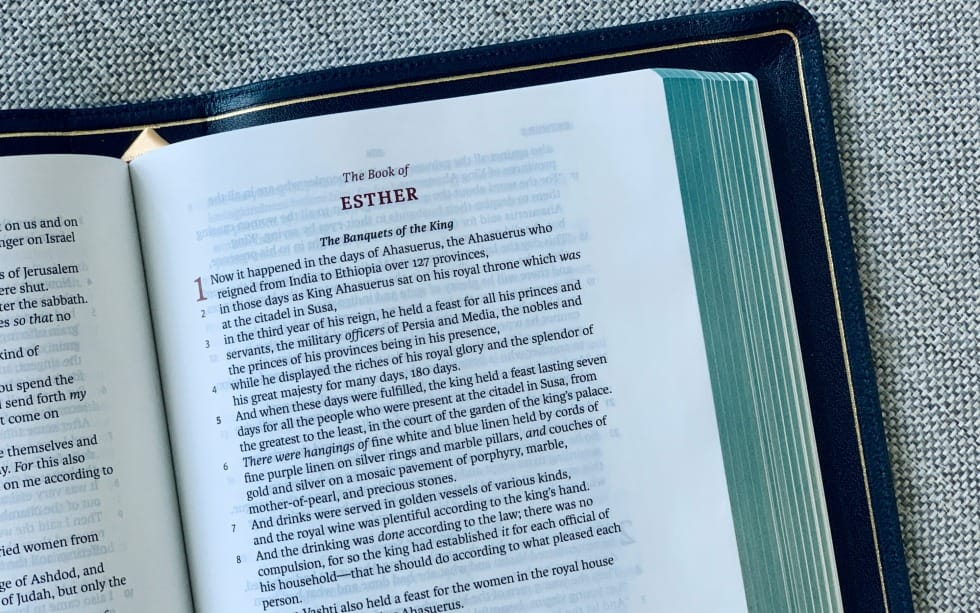How Do You Respond to Pressure? (Esther 4-6)
How do you handle pressure situations? In Esther 4, the pressure is on. Esther’s cousin, Mordecai, learns about a man named Haman's decree to annihilate the Jews.

Esther 4-6
Today's Scripture Passage
A Few Thoughts to Consider
How do you handle pressure situations?
In Esther 4, the pressure is on. Esther’s cousin, Mordecai, learns about a man named Haman's decree to annihilate the Jews. After mourning, he communicates with Esther through a messenger, urging her to appeal to King Xerxes on behalf of her people.
Esther responds with these very real concerns in verse 11: “All the royal officials and the people of the royal provinces know that one law applies to every man or woman who approaches the king in the inner courtyard and who has not been summoned—the death penalty—unless the king extends the gold scepter, allowing that person to live. I have not been summoned to appear before the king for the last thirty days.” The stakes couldn’t be higher. Still,
13 Mordecai told the messenger to reply to Esther, “Don’t think that you will escape the fate of all the Jews because you are in the king’s palace. 14 If you keep silent at this time, relief and deliverance will come to the Jewish people from another place, but you and your father’s family will be destroyed. Who knows, perhaps you have come to your royal position for such a time as this.”
As Debra Reid notes, “Mordecai’s response to Esther has three elements: (1) her own life is in danger; (2) the Jews will be saved with or without her; (3) her very purpose in life is at stake.”[1] He is bringing instant clarity to the situation, showing her that God has prepared her for this very moment. Fredric Bush says, “Mordecai is not postulating that deliverance will arise for the Jews from some mysterious, unexpressed source. Rather, by affirming that Esther is the only possible source of deliverance for the Jews, he is attempting to motivate her to act.”[2]
This phrase “from another place” in verse 14 is a bit confusing, and many attribute this as the closest reference to God in this book. While some interpret this as a not-so-subtle threat, as Joyce Baldwin writes, “Mordecai undoubtedly implied that God would protect his people and that he had purposed to use Esther by causing her to be chosen as queen.”[3]
Rather than choosing to look out only for herself, Esther commits to a three-day fast. In doing so, she takes what is routinely seen in Scripture as the greatest form of action one can take in terrible situations. This fast, as Baldwin notes, “revealed that she shared the faith of Mordecai in the God who answers prayer, though she did not mention his name. Her need was for courage to fulfil her destiny by interceding for the life of her people, though it could cost her her own life.”[4] In her words in verse 16, “If I perish, I perish.” Her resolve is clear. She recognizes that God has prepared her for this moment, and she will act even with her life on the line.
From there, chapters 5-6 provide a fury of activity. They show how Esther approaches King Xerxes and is favorably received. She invites the king and Haman to a banquet, where she requests their presence at another feast the following day. Meanwhile, Haman, filled with pride, builds a gallows to hang Mordecai. That night, the king, unable to sleep, reviews the royal chronicles and discovers Mordecai's earlier act of loyalty in thwarting an assassination plot. To honor Mordecai, the king orders Haman to lead a public parade in his honor, humiliating Haman and foreshadowing his downfall.





